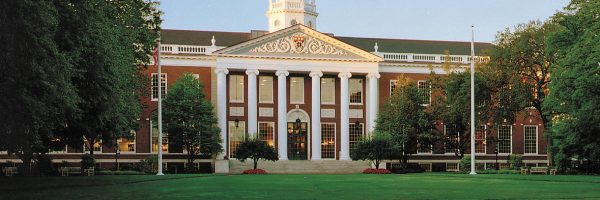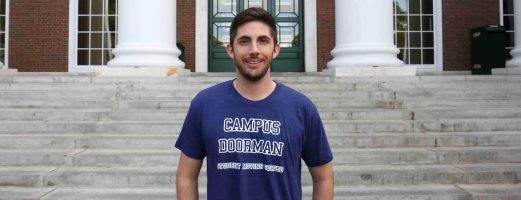Which Business Schools Produce The Most Unicorn Founders?

Billion-dollar startups, more affectionately and repeatedly crowned as Unicorns, have become a benchmark that business schools around the world use to boast overall success. But which business schools actually produce the most successful startup founders?
MIT Sloan Student Startups Populate 2017 Forbes 30 Under 30

MIT Sloan recently published an article celebrating the 17 alumni and students who made it to Forbes “30 Under 30” for 2017 with “smart, tech-driven innovations” that tackle “social and health problems” that affect different populations across the globe.
Inside the FinTech Industry

Finance has always been one of the hottest MBA industries. In fact, at many top schools such as the Booth School of Business and NYU Stern, over 30 percent of MBA graduates go into the financial industry each year. Why? Because it’s lucrative—the average Finance MBA earns $121,000 a year compared to $104,000 for other specialties—and well respected. However, until now, one thing that an MBA in finance did not offer was innovation.
The finance industry is one of the oldest and most prestigious industries around. It’s built on a foundation of history and careful research; after all, no company wants a CFO who makes decisions based on gut instinct. But, recently, a new side of the financial services industry has started to gain traction: FinTech. Continue reading…
Startup Lessons: Campus Doorman

The path for startups can be treacherous. In the series “Startup Lessons,” we examine new MBA startups at the ground level to understand how they succeed.
Economists, Professors Sign Letter Warning Against Voting For Trump

To say many professors and economists are a bit wary of a potential Donald Trump presidency is probably underselling it.
Not too shortly after author and Questrom School of Business at Boston University professor Mark T. Williams wrote a scathing response to Trump’s proposed economic policies in Business Insider, a host of the country’s most esteemed academic minds joined him in resolute agreement, signing a letter of warning against voting for the Republican presidential nominee.
The letter featured 370 economists, professors and several Nobel laureates—including Harvard economist Oliver Hart, who recently won the Nobel Prize in Economic Sciences with MIT Sloan economist Bengt Holmström—calling a Trump a “dangerous, destructive choice” for president.
The letter does not explicitly endorse Democratic presidential candidate Hillary Clinton, nor any third party candidates. Rather, the group only warned against voting for Trump.
“I don’t normally engage in politics, but I decided to sign this one because I think that the destruction that Trump’s campaign tactics have done to the institutions of this nation is a great moral issue,” writes Yale University economist Robert Shiller “It isn’t Republican versus Democrat. It isn’t a normal political statement. It is a feeling of outrage against a demagogue.”
The criticisms run deep. From his proud misinformation, to his proliferation with conspiracy theories and even his notorious business practices.
Signatories Paul Romer, the new chief economist at the World Bank, and 1972 Nobel Prize winner Kenneth Arrow add, “He misinforms the electorate, degrades trust in public institutions with conspiracy theories and promotes willful delusion over engagement with reality,” propping “magical thinking and conspiracy theories over sober assessments of feasible economic policy options.”
The Wall Street Journal also reports that 19 separate U.S. Nobel Prize winners in economics endorsed the aforementioned Hillary Clinton in a letter released on Monday, Oct. 31. That letter came out just days after FBI Director Paul Comey announced the bureau would proceed with more investigation into the Clinton server email scandal, this time relating to emails coming from former U.S. House of Representatives member Anthony Weiner. Weiner was formerly married to Clinton’s trusted aide Huma Abedin.
Iron Goat Tech Startup Takes Home $70K at MIT Competition

There are some great ideas and startups coming out of George Mason University. Iron Goat Technologies is one of them. This Mason-produced startup recently won $70,000 at the MIT Clean Energy Prize competition at the Massachusetts Institute of Technology, according to a report on the school website.
